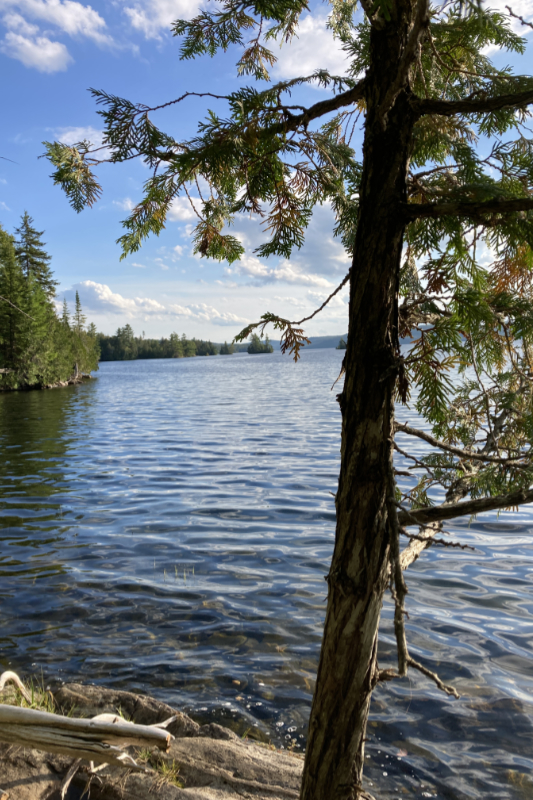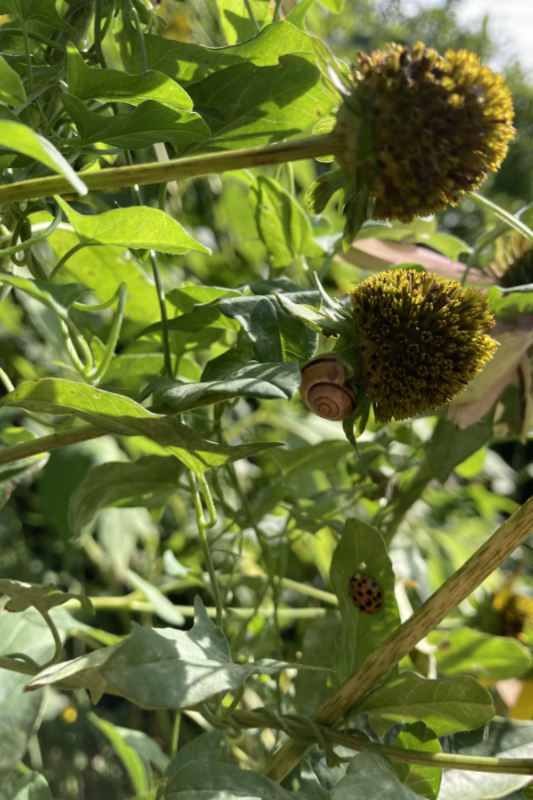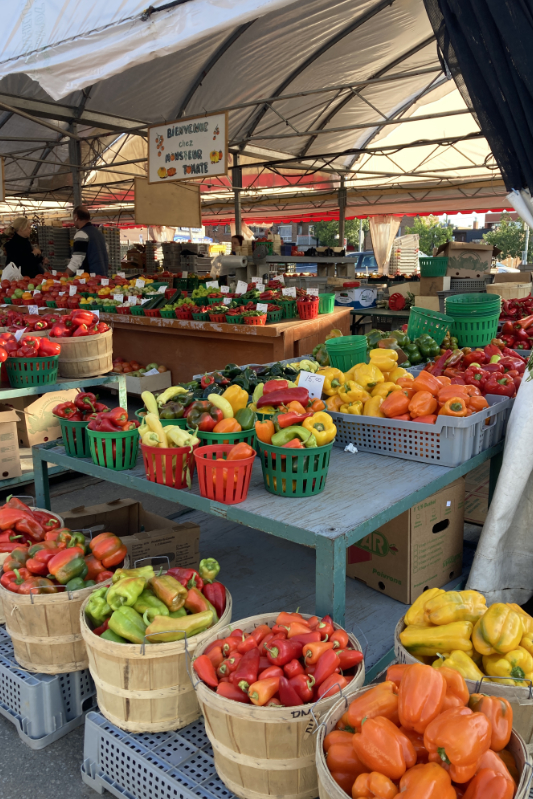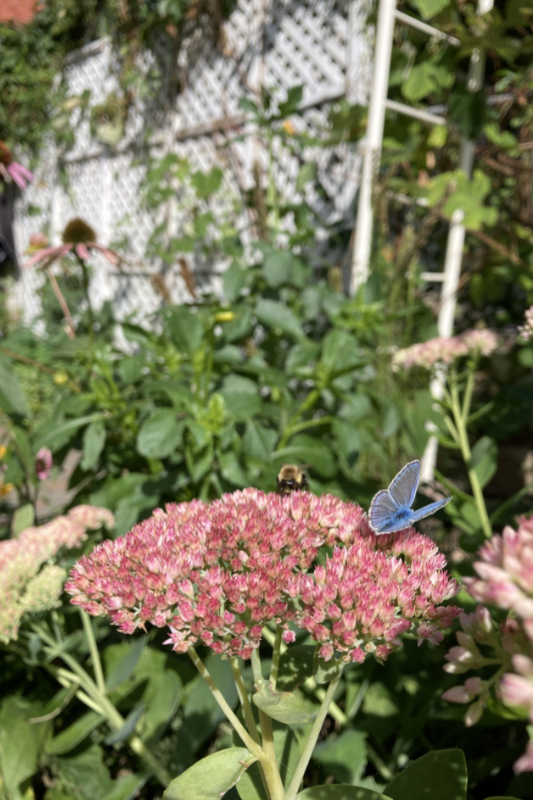Get posts by email
Explicating core political & spiritual values
September 22, 2022
This is the fourth post in the Why have you become so political? series.
↓ Audio recording of this post ↓
My last post ended with the promise that the next post in the series would be about authoritarianism.
I concluded that piece with, “Dark forces are lurking in our political systems that we call democracy. These forces undermine our collectivity, our ability to care for one another, and also our individual agency and autonomy.”
I realized that before I can publish my thoughts on authoritarianism, I need to explain, very clearly to myself and to you, my core political values. Values that do not allow me to align myself with authoritarian actions, wherever they’re found, and still live with integrity.

Articulating one's deepest values is hard work.
I call myself a writer, not because I’m a print-published author but because I’ve leaned on writing, mostly unpublished, as a practice to help me understand myself, my ideas, and the world-at-large for a quarter century.
A decade ago I identified that my writing is at the edge of my personal growth and development and experiences. I’m often writing my way into new territory, using this as an intellectual tool to help guide my way there. A published piece is like a snap shot in time, standing at some kind of boundary or threshold in my life, writing about where I’ve been or what I see on the horizon.
There’s an inherent vulnerability to this position. You’re not safely ensconced in the middle of something. (Though I do some writing from that position also.)
The political is where I’m experiencing a lot of intense personal growth so this is where I need to write. In addition, “the political” itself is a topic I haven’t written a lot about, explicitly. Both the growth and the attempts to write about it, stretch me intellectually.
Even with this many years of practice and a commitment to writing at the edge, I quake a bit in my hiking shoes at the idea of writing through this series.
Like a lot of my deeply held beliefs, I don’t see them reflected back at me in wider cultural behavior or discourse. This discrepancy at least provides a point of contrast. A “not this” to start the discussion.
But if not this, then what? And if that “what” is not a value of dominant culture, or even the micro-cultures we live in, the burden of proof is placed on the dissenting, questioning, or critiquing voice. In this milieu sometimes it’s just easier to keep thoughts to oneself and do the work of living the ideas. I think a lot of us do this and our families and communities are all the better for it! If life limited me to a choice of only one, I’d choose living my values over writing them. Thankfully, I get to do both.
I recognize that I can only entertain certain ideas and hold particular beliefs because I was born in a specific context. This always sobers any sense of inevitability or manifest “obviousness” I might assign to my thinking. It also tempers the notion of absolute truth and complicates how we, as a species and as individuals, define and establish Truth. (I still hold to certain Truths, which you will see in the following writing.)
I live in “this” time and place. I’ve had a unique set, as we all have, of life experiences. And I’m of a certain personality bent. All of that brings me to these thoughts.

Interconnectedness/Relationality
Interconnectedness is a foundational belief of mine.
I am a part of you. You are a part of me. We are connected regardless of religion, race, creed, gender, ancestry, and any other markers that we use to differentiate ourselves from one another. Differentiation, marking difference, in itself is not a problem. It’s the meaning we assign to difference that leads to division, not the fact that difference exits.
The underlying reality of our existence is one of connection and connectedness.
This is what I refer to as our relationality with one another. I have learned this term in my study of Indigenous knowledges. I am a deeply relational person. I know, define, and identify myself through my relationships and the roles and responsibilities within those relationships. The concept of relationality resonates so strongly with me that I have adopted it into my spiritual and social framework.
Any quick google search on the word relationality will surface research papers and other writings about this concept. I have learned about it through the teachings of Indigenous authors/writers, researchers, and elders. These teachings have been mirrored, adopted, and reiterated in other sources like Kinship: Belonging in a World of Relations.
Relationality is a philosophy that describes the interconnections between all of creation and kinship consists of family, community, and all extended human and more-than-human relations. Campbell et al.
Similarly, and concurrent to how motherhood opened the door for a changed theology, motherhood opened the door for me to see (and believe) in the interconnectedness of all life and to understand personal identity in relationality.
Once I became a mother, I was a mother in identity, role, and responsibility. My directly observable and experienced relationality to my children helped define not only my purpose, but my being. My deep and abiding connection with my children changed my theology and it opened me to the idea of relationality as reality.
It took me a couple decades to wrap words around it, and to be given the language for it, but having arrived at this edge of my growth it is a source of truth, comfort, and pain for me to know myself as an interconnected being.
I was raised in a religion of separateness. Original sin separating humans from God. Believers being separate and set apart from non-believers. A separation that could only be bridged in the brutal execution of a first century Palestinian Jew.
The belief of separateness alienates us, from each other, from the Earth, from the Divine, from all living and non-living things. It creates a schism between physical/material and meta-physical/spiritual realities. This results in thinking that spiritual reality supersedes material reality, underwriting and justifying incredible harm, exploitation, and oppression of each other, non-human beings, and the Earth.
To be clear, I inherited a lot of good from my Christian religious upbringing, including the actual teachings of Jesus, the testimony of inclusivity and communal care of the early Church, and the belief in the universality of human dignity and worth upon which western-informed liberal ideals, if not practices, are based. And I remain a Christian to this day because of the good I was given and the love, belonging, and integrity I experienced within my family.
These inherited good gifts and my belief in relationality form the bedrock for another core value of mine: that our purpose as humans is to care for another.
The responsibility to care
I recognize that people identify various and multiple life-affirming purposes for their lives and the human species. The Christian mantra I grew up with was: Love God. Love People. A contemporary expression of Jesus’ distillation of the commandments in the book of Matthew.
‘Love the Lord your God with all your heart and with all your soul and with all your mind.’This is the first and greatest commandment. And the second is like it: ‘Love your neighbor as yourself.’ All the Law and the Prophets hang on these two commandments.
Although I don’t frame my own purpose in these precise terms, my own ethics are rooted in it. For me, loving God means loving people, and myself, and the Earth because God is in these things and our relationality connects us to all of it. There is no room for loathing of any of these things in a practice of love.
Care and tending to one another is the corner-store practice and cause under the banner of Love. What is Love, if not care?
People will frame Love into other social and relational causes and actions. That’s ok. I don’t hold the corner on truth.
Some people might not use the terms care or Love as a guiding force in their life, but might see our highest human expression found in justice, equality, science, problem-solving, exploration, discovery, art, etc. My own take is that most, if not all life-affirming possibilities, innovations, and actions that are practiced and believed by humans are either concomitant to, or can advance our capacities for care.
The point of it all, for me, is to care for one another better.
I think a lot of people have a similar value to care for one another and the earth. The evidence is very supportive of this hypothesis. Yes, some people are just power-hungry, greedy, and narcissistic. I have ideas about how those qualities surface strongly in some and not others, and what we might do about that in our relationships and our society, but that’s outside the scope of this post.
Given that those selfish tendencies exist in humans, I choose to trust in the power of Love and care to be a guiding value for individuals and humanity as a whole. I think this faith has been nurtured in me because I really lucked out in loving and caring formative relationships.
I am oriented towards care for others as a political and spiritual value. This is a tall order and I don’t meet the mark of it in my personal life and so I have no delusions about it being achieved en masse, perfectly, in the group. But it is what I believe our systems, all systems, should be seeking to achieve and be constantly re-calibrating towards.
If we are interconnected, if relationship is the reality, the outflowing of that is care. Care for each other, care for the Earth, care for all Earth’s inhabitants.

Individual sovereignty & autonomy
So, to get really philosophical about it, care of the individual and the interconnected of all things, assumes that the individual exists, as an entity. There is no interconnectedness of all things if no “unique things” exist to be connected to each other.
Care for the other implies there is an “other”. An individual, a unique expression of life, different from you.
As I’ve stated in my introduction, my own political beliefs, like everyone else’s are influenced by my context.
With regards to individual sovereignty, if I had been born pre-enlightenment in my ancestral territories or into certain indigenous cultures, for example, it is likely I would not hold this value to the degree I do. My security-seeking tendencies may have led me to stand on the medieval market square soapbox advocating for the Divine Right of Kings. Who knows?!
At various points in human history and within certain cultures there hasn’t been a well-developed notion or even understanding of “the individual” as a separate entity. Acknowledging all that, as part of my positionality and context, I will continue with my values.
The goal of a human existence is to reach one’s full potential, which includes happiness, liberty, and self-actualization. For me, these ends are found in both our spiritual and material realities. The pursuit of these ends both requires and is dependent upon maximal individual sovereignty and autonomy. Of course the autonomy and freedom of individual action stops at the boundaries of another individual’s sovereignty. This is a given in my framework.
Even though we may desire to keep well away from these boundaries to avoid conflict, the goal of human development is not to establish systems to keep the individual in check, far from the boundaries of another’s individual sovereignty. Rather, the goal is to see how far the individual can flourish within their autonomy, held in a web of relations.
Stated otherwise, the point of realizing individual freedom and sovereignty is to maximize what one can contribute to the collective of family, community, and society. Where the purpose of these collectives is to bring about the conditions for individuals to flourish.
For the individual to be sovereign they must be free to choose their contribution, and the community/family must be willing to free the individual from the bounds of inherited ideas. This is where I break with traditionalists even though through a certain lens I am quite conservative.
Moving beyond the known bounds of ideas is the only way that we evolve, grow, and develop as individuals and a species. The moral and ethical challenge of course, in this outward growth, is defining what boundaries are immutable. For me, these boundaries are defined by care and rooted in natural and material limits. I’ve already explained my position on the former. And by the latter, I mean that the actual material conditions of the natural environment and biology dictate a lot of what’s possible. In contrast to boundaries that are defined by social or cultural dictates.
We are constrained by what we are and where we are as organic beings in a particular ecosystem. But of course humans have been tinkering with these constraints, engineering answers to biological and environmental limitations for ages, with both life affirming and life destroying ends, often in the same technology or development. And so I recognize that this boundary is a weak point in my position and remains philosophical and idealistic, but the kernel of it is still a boundary line for me, though a very murky one and subject to much more interrogation. But most boundaries are.
The coalescing of values and ideas into theory
What I write here of course is theory. You’d be correct to point out that the application is fraught and messy. The inherent vulnerability of practicing, living, and embodying these values however, does not make it wrong, it makes it human.
You’d also be correct to point out that there is a striving in these thoughts for a sweet spot between liberalism and communitarianism. But this is not a contrived argument seeking a middle ground upon which we can all agree, as much as I would love that! This is my actual orientation developed through formative experiences (rejecting some, keeping others), and years of thinking about, seeking out, and practicing a way of living - in parenting, marriage, and relationships with people - that I think creates the conditions for maximal human flourishing.
I have evolved into this operating system over years as a wife, mother, and homeschool educator. It was in those particular relationships, roles, and responsibilities that these ideas grew within me.
While those ideas were growing in me they had to meet and overcome the resistance of the operating system of my youth and early adulthood years which, driven by my security-seeking tendencies, looked for hierarchies of authority and doctrinal statements under which to find safety. My religious and cultural upbringing, and my own personality, primed me to seek a source of security within these kind of structures.
The underlying idea was/is that “staying in your pre-ordained place and believing this creed” is how everything will be ok. To be clear, this is not just the fault and particular teaching of Christianity (as a religion, not as the example of Jesus). This is baked into class and caste societies, which have and do exist well outside the Christian religion.

This theory in the context of homeschooling
I have attempted to give words to an educational practice of autonomy, responsibility, and relationality through many years of writing. I didn’t always have those words but the germ was there. Before putting this post together, these ideas found some expression in the teachings of my Freedom Education course.
The writing I’m doing now, this series on political values and action, is just the most recent iteration of my repeated attempts to explicate a lived journey and practice.
My modus operandi in family life and homeschooling have been these principles:
- We get to do this our own way as a family, define our own collective and its terms, for the flourishing of everyone in this family.
- We are committed to the autonomy, freedom, growth, and development of the individual in this family. We are collectively committed to the care of each individual in this family.
- The individual is free to go beyond the bounds of the collective and bring back to it the ideas for our communal growth and development. (Side note: This is one of the exquisite gifts of parenting. You form the close bonds, the trust, and connection necessary, to allow new ideas to come into your life, to challenge you and help you grow.)
My goal has been to give my children the maximal freedom of growth, expression, and development within the constraints of the community of our family. I have tried, as much my personal evolution allowed at any point, for these constraints to be rooted in care and “natural limits” and not social, religious, or cultural constructs.
I have failed at times. And there is always the tension of “but we do live in a particular cultural context and how should I/we respond to that?”
But failure is not primarily an indictment on the integrity of my actions with my intentions, it’s an invitation to re-orient and get up from the fall pointed in a more integrated direction. And as for the tension of living in actual cultural constructs, I accept that there will be no escape from this discomfort, but constant navigation and attempts at subversion.
Reflections on doing the work of articulating these values
The opportunity to write this all out has been a gift. I couldn’t have anticipated that the cultural rifts caused by the pandemic would thrust me into the task of writing ideas that have I’ve been ruminating and cogitating on for years. Digital notes, paper mind maps, draft documents, and index cards having met this winter’s intellectual, emotional, and spiritual crucible, squeezed into publication.
It’s such a relief to finally have this all written down in one place.
The lived experience of the tension and the intellectual pursuit to understand and reconcile between individual agency and collective care, have been animating ideas in my life for years.
Freedom Education is what first brought them to the published surface, but there was always a deeper vein of thought that needed more time to articulate. This series has been that excavation.
For now I’ve settled on three terms to shorthand these ideas: autonomy, responsibility, and relationality.And you will see these used in my writing until some as-of-yet-unknown point in the future where I’m able to re-frame or come into better words.
What I’ve laid out here are core beliefs and ideals. They are spiritual values and familial values. They are how I want to live in the community of my family. They are political values in that they inform how I think we should do life together as a polis.
In short, this framework informs my economic, environmental, political, and social imaginations.
These ideas will evolve in me, I’m certain of it. I am both curious and a little anxious to see where it will lead. I’ve changed my mind before. I’ve grown past, out of, beyond certain beliefs I held as true. The same could happen here. But in this post I’ll have the record of where I once stood, on this particular edge, oriented towards a horizon where I can live these values.
Coming up next
My next post in this series will pick up where the previous post in this series left off, explaining how I found the dark force of authoritarianism lurking in places I had not expected to find it. And now, you’ll have the necessary context for why authoritarianism is so repugnant to me. I can’t support it, even as a means to achieve the ends I want, and hold any integrity to the foundational values I have laid out above.
Don’t miss a post. Subscribe to my mailing list (it’s free!) and get posts delivered to your inbox.
Filed Under
Part of Series
Resource Library
You can subscribe to comments on this article using this form.
If you have already commented on this article, you do not need to do this, as you were automatically subscribed.





